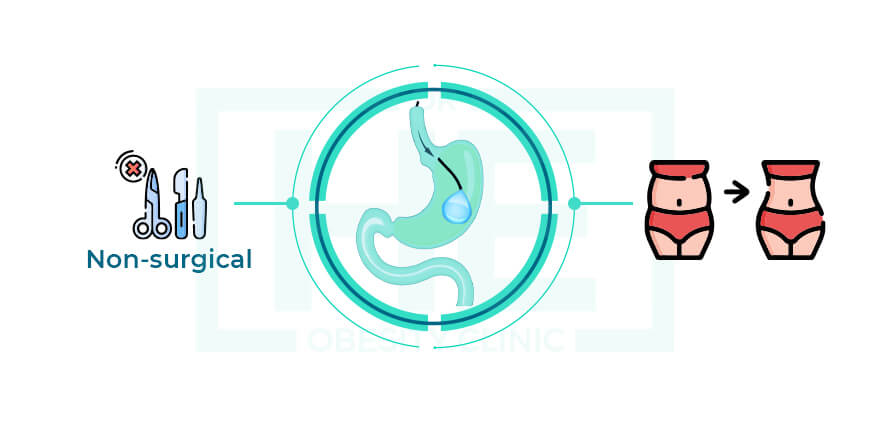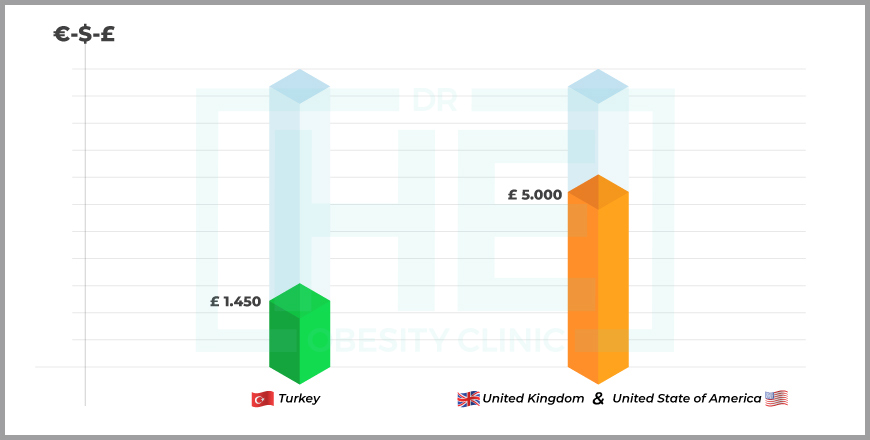
Gastric balloon Turkey Istanbul, gastric balloon Turkey price, gastric balloon cost Turkey, allurion gastric balloon cost Turkey, gastric balloon price in Turkey. Embarking on a journey toward weight loss, individuals worldwide are turning their attention to Turkey, specifically Istanbul, for a transformative gastric balloon procedure. Renowned for its proficient medical experts, Istanbul has become a beacon for those seeking a non-surgical solution to manage their body weight. This technique emerges as a prime choice, especially for patients whose body mass index falls within the 30 to 40 range. Not only does the city offer exceptional expertise in the field, but it also presents a cost-effective alternative to similar treatments in other nations.
The average expense for this procedure in Turkey lies in a range that captivates the budget-conscious, spanning from 2300 to 3400 USD. Moreover, comprehensive packages in Turkey integrate all facets of the experience, offering a seamless path to weight loss. As a result, the gastric balloon option in Istanbul stands out not merely for its affordability but for the all-encompassing care that accompanies it.
Gastric balloon is a non-surgical weight loss method that involves placing a silicone balloon filled with saline solution into the stomach. The balloon occupies space in the stomach and makes the patient feel full faster and eat less. The balloon is usually removed after six months.
Gastric balloon is suitable for patients who have a body mass index (BMI) of 30 to 40, or 40 or higher with obesity-related health problems. It is also an option for patients who cannot lose weight with diet and exercise, or who are not eligible for other types of bariatric surgery.
Gastric balloon is performed endoscopically, which means that the balloon is inserted through the mouth and down the esophagus into the stomach. The procedure takes about 20 minutes and requires light anesthesia or mild sedation. There is no overnight hospital stay required.
Gastric balloon can help patients lose 10% to 15% of their body weight within six months. It can also improve or resolve obesity-related conditions, such as diabetes, high blood pressure, sleep apnea, and joint pain. It enhance the quality of life and self-esteem of patients.
Gastric Balloon Turkey
Gastric balloon cost in Turkey Istanbul, varies depending on the clinic, the doctor, the package, and the patient’s needs.
• The experience and reputation of the doctor who performs the procedure.
• The accreditation and location of the clinic where the procedure is done.
• The quality and brand of the balloon used.
• The duration and type of the hospital stay and the room.
• The inclusion of preoperative and postoperative tests, medications, and consultations.
• The inclusion of accommodation, transportation, and other services for the patient and the companion.
• The exchange rate of the Turkish Lira and the currency of the patient.
Istanbul is one of the most preferred destinations for gastric balloon, because:
It has highly qualified and experienced doctors who have international certifications and accreditations.
• It has modern and well-equipped clinics that have Joint Commission International (JCI) accreditation and follow international standards of excellence.
• It offers affordable and all-inclusive packages that cover all the medical and non-medical expenses of the patient.
• It has a rich and diverse culture, history, and nature that can make the patient’s stay more enjoyable and relaxing.
| Gastric Balloon in Turkey Brief Details | |
|---|---|
| Length of procedure: | 30 minutes |
| Recovery period: | 2-3 Days |
| Complications: | Nausea,Vomiting,Diarrhea, Abdominal pain |
| Exercise: | Walking, GYM |
| Risks: | Ruptures |
| Stay: | 2 Days in total |
| Scars: | No scars |
| Pain: | Average |
| Potential candidate: | Who does not have reflux, ulcer and gastirits. |
| Best Time for Surgery | Everytime |
| Best Age for Surgery | Between 18-60 |
What Is Intragastric Balloon?
The gastric balloon stands as a cornerstone in Turkey’s weight management medical offerings. This system involves a durable, soft balloon that is expertly inserted and then expanded within the stomach. The mechanics of the gastric balloon are straightforward yet ingenious. Once in place, it occupies enough space to prompt a sustained sensation of satiety, effectively diminishing the need for large meals.
The procedure aids individuals in adhering to smaller portion sizes, a vital step in the weight loss process. Furthermore, the intragastric balloon is meticulously designed to remain within the stomach. This ensures it performs its function without the risk of migrating to the intestine, providing both safety and efficiency in weight control.
The impact of the gastric balloon is considerable, as it lays the foundation for patients to maintain reduced food intake, thereby supporting long-term weight loss strategies. Consequently, the gastric balloon system is not just a temporary fix but a catalyst for enduring lifestyle change, guiding patients towards their desired weight objectives with a structured approach.
An intragastric balloon, also known as a gastric balloon, is a non-surgical, temporary weight loss treatment. It involves placing a deflated silicone balloon into the stomach and then inflating it to reduce the amount of food the stomach can hold. This procedure is typically recommended for individuals who have struggled to lose weight through diet and exercise alone and may be considered as a prelude to more invasive weight loss surgeries.
The placement of an intragastric balloon is usually performed by a gastroenterologist or a bariatric surgeon. The procedure is typically done on an outpatient basis and does not require a hospital stay. It is often carried out under sedation or light anesthesia to minimize discomfort for the patient.
Once the balloon is in place, it is filled with a sterile saline solution to expand and occupy space in the stomach. This reduces the capacity of the stomach, leading to a feeling of fullness and satiety with smaller food portions. The balloon remains in the stomach for a period of six months, after which it is removed through an endoscopic procedure.
The intragastric balloon is intended to jump-start weight loss and help individuals adopt healthier eating habits. During the six months that the balloon is in place, patients work closely with a multidisciplinary team that typically includes a dietitian, psychologist, and exercise specialist to make lifestyle changes that will support long-term weight management.
It’s important to note that the intragastric balloon is not a stand-alone solution for weight loss. It is most effective when combined with a comprehensive weight loss program that includes dietary modifications, regular physical activity, and behavioral counseling. The balloon serves as a tool to assist individuals in making the necessary lifestyle changes to achieve and maintain a healthier weight.
Candidates for intragastric balloon placement typically have a body mass index (BMI) between 30 and 40 and have been unsuccessful with traditional weight loss methods. It is important for individuals considering this procedure to undergo a thorough medical evaluation to determine if they are suitable candidates and to understand the potential risks and benefits.
As with any medical procedure, there are potential risks associated with intragastric balloon placement. These may include nausea, vomiting, abdominal pain, acid reflux, and in rare cases, balloon deflation or migration. Patients are closely monitored during the time the balloon is in place to address any potential complications that may arise.
The intragastric balloon is a non-surgical option for individuals seeking to jump-start their weight loss journey. It is intended for those who have struggled with obesity and have been unable to achieve meaningful weight loss through diet and exercise alone. When combined with comprehensive lifestyle changes, the intragastric balloon can be an effective tool for initiating weight loss and improving overall health. However, it is important for individuals to carefully consider the potential risks and benefits and to work closely with a healthcare team to ensure the best possible outcomes.
Can You Get A Gastric Balloon in Turkey?
Eligibility for the gastric balloon procedure in Turkey extends to those grappling with obesity, where traditional weight loss measures have not yielded the desired results. Suitable candidates often include individuals with a body mass index exceeding 25 kg/m², indicative of an immediate need for weight management interventions. This demographic typically consists of those who have faced continuous challenges in shedding weight through diet and exercise alone or have reached a plateau in their weight loss journey.
Furthermore, the intragastric balloon serves as a strategic step for patients requiring significant weight reduction prior to undergoing major surgical procedures. The balloon, acting as a temporary and less invasive option, aids in lowering the risks that excess weight poses during surgery. It proves to be a vital preoperative measure, enhancing patient safety and surgical outcomes.
Benefits reported by patients who underwent the gastric balloon in Turkey include:
- Substantial weight reduction
- Enhanced mobility and physical comfort
- Improvement in obesity-related health conditions
These testimonials highlight the procedure’s effectiveness, reflected in the positive feedback from numerous individuals who have visited Turkish medical facilities. The country’s medical prowess in this domain is complemented by its healthcare infrastructure, which is equipped to provide comprehensive support throughout the weight loss journey. The synthesis of professional expertise and high-quality care in Turkey makes the gastric balloon procedure a compelling option for those seeking medical intervention to combat obesity.
Gastric Balloon Before&After Photos







Intragastric Balloon Types

The Allurion Gastric Balloon emerges as a pioneering leap in the field of non-surgical weight loss interventions. With its unique design, this balloon paves the way for a less invasive approach, circumventing the need for both anesthesia and endoscopic procedures for its placement or removal. This novel device is tailored for obese individuals who harbor apprehensions about more invasive procedures or possess risks related to anesthesia.
Contrary to traditional methods, the Elipse balloon encapsulates a more patient-friendly experience. Encased within a vegetarian capsule, the balloon remains connected to a slender catheter, ensuring a secure and efficient delivery system. Upon ingestion, the device unfurls within the stomach’s expanse, its presence confirmed by an X-ray that identifies the balloon’s distinct radiopaque marker. Subsequently, the balloon is filled with a preservative-laden solution, marking the completion of a 20-minute outpatient procedure.
The balloon’s lifecycle concludes after four months of residency in the stomach. At this juncture, it autonomously empties and the biodegradable material disintegrates. This process allows the balloon to collapse and transit through the gastrointestinal tract for natural expulsion.
While the Allurion Gastric Balloon stands as a testament to medical innovation, it is not without potential drawbacks:
- The absence of pre-placement endoscopic examination increases the risk of unrecognized gastric pathologies.
- The potential for inappropriate placement by inexperienced professionals heightens the possibility of intolerance and complications.
Nevertheless, the Elipse balloon’s ease of insertion and self-removal has expanded its accessibility. It has enabled a wider range of physicians to offer this solution, potentially reducing the overall costs associated with diet programs. Thus, the Allurion Gastric Balloon not only represents a step forward in weight loss technology but also reflects a growing trend towards patient-centric medical procedures.
In the realm of medical advancements, the Orbera Intragastric Balloon (IGB) system has carved out a significant niche. Pioneering the modern era of gastric balloons, Orbera IGB first made its appearance in 1991, post the Tarpon Springs Consensus. It holds the distinction of being the most widely utilized device in endoscopic weight loss, with a substantial body of historical data affirming its effectiveness. Consequently, subsequent gastric balloons have invariably drawn upon the foundational concept introduced by Orbera.
The Orbera system, which received FDA approval in 2005, features a singular spherical silicone balloon. This device, approximately 13 centimeters in diameter, is delivered in a commercially compressed state. The placement process is meticulous, beginning with a diagnostic endoscopy. The balloon is then positioned within the gastric fundus, and a physician-selected volume of saline solution is infused for inflation. This procedure unfolds under the vigilant gaze of endoscopic guidance. Upon inflating the balloon, the system is sealed off, ensuring the balloon’s valve closes securely. Consequently, the balloon is left to float freely within the stomach’s cavity.
Significantly, the Orbera balloon is designed to be safely implanted for a duration of up to six months. Beyond this period, the risk of complications such as perforation or deflation heightens, potentially leading to bowel obstruction. The removal of the balloon is as precise as its insertion, necessitating sedation and endoscopy. Employing a double-channel endoscope and specialized forceps, the deflation and extraction are carefully conducted to ensure patient safety.
Moreover, the second-generation model, Orbera365, extends the potential residency of the balloon to 12 months, mirroring the original’s traits. This innovation allows for a more extended weight management period, providing patients with a longer-term solution. Such an option underscores the ongoing evolution within the field, offering extended support to those on their weight loss journey.
The Spatz3 gastric balloon represents a significant advancement in non-surgical weight loss interventions. Tailored to align with the Tarpon Springs Conference’s initial criterion, this third-generation device stands out for its adjustable volume. This feature allows for tailored treatment, accommodating patient comfort and enhancing weight loss efficacy. Indeed, the Spatz3 balloon is recognized for its ability to remain within the stomach for an entire year, providing ample opportunity for patients to adapt to healthier eating habits and lifestyle changes.
Distinctively, the Spatz3 balloon’s design incorporates a valve ‘tail’ which, despite creating a non-smooth surface, serves an essential purpose. The manufacturers suggest that this tail may help to prevent or delay the passage of a deflated balloon through the duodenum, potentially averting complications. Although not yet approved by the FDA, the Spatz3 has earned the European Union’s CE mark, testifying to its adherence to health, safety, and environmental protection standards.
The balloon’s unique system includes:
- A saline-filled silicone balloon that can be adjusted in volume.
- A silicone-covered anchor to aid in insertion and removal while preventing migration.
- A silicone filling tube that stretches to modify the balloon’s fluid volume.
Insertion of the Spatz3 requires a well-lubricated endoscope and careful positioning within the gastric cavity, ensuring the balloon is inflated safely within the stomach and not the esophagus. Post-inflation, the filling catheter is detached, leaving a valve with a blue nylon loop in the patient’s mouth, which is then repositioned in the gastric fundus.
Adjustments to the balloon’s volume, whether to increase or decrease, are meticulously carried out by reattaching the filling catheter and either extracting or adding saline. As the 12-month period concludes, the balloon’s removal necessitates endoscopic intervention under anesthesia, given its size and the complexity introduced by its irregular morphology.
- Heliosphere Balloon
In the realm of medical advancements, the gastric balloon stands out as a noteworthy development for weight management. Within this domain, the Heliosphere balloon distinguishes itself as an innovative air-filled alternative designed to mitigate the adverse effects typically associated with its liquid-filled counterparts. Introduced in clinical settings since 2004, this device hails from Vienne, France, offering a unique solution to the discomforts post-implantation.
Characterized by its lightweight nature, the Heliosphere balloon tips the scales at less than 30 grams. Encapsulated within a silicone layer, it boasts a high-volume capacity that can be filled with 900 to 1000 milliliters of air. The insertion process, while necessitating endoscopic intervention, is streamlined by a straightforward inflation system. Despite a relatively speedy median inflation time of 12 minutes, the procedure’s duration eclipses that of other gastric balloons, such as the Orbera.
- The balloon is well-tolerated over a six-month period.
- It demands deep sedation due to the discomfort it causes.
Furthermore, the Heliosphere balloon’s design poses certain challenges. Its passage through the cardia and upper esophageal sphincter presents technical hurdles due to its sizable diameter and reduced pliability. These factors contribute to a higher incidence of positioning failures and instances of spontaneous deflation. Similarly, the removal process can encounter complications, occasionally necessitating surgical intervention or the employment of a rigid endoscope. To address this, practitioners recommend utilizing a two-claw forceps for secure retrieval.
Moreover, the balloon’s air-filled nature calls for caution among patients. Those considering the Heliosphere must avoid activities like scuba diving and flying in unpressurized aircraft cabins, as such environments pose serious health risks. In essence, while the Heliosphere balloon is an ingenious approach to weight loss, it comes with an array of considerations that must be meticulously evaluated by both the patient and the healthcare provider.
- ReShape Duo Integrated Dual Balloon System
This innovative approach, conceived by ReShape Medical, Inc., involved a pair of silicone spheres. These spheres, inherently robust in their design, were linked by a flexible shaft that ensured stability within the stomach’s complex environment. The dual nature of the system aimed to mitigate the risks associated with single balloon systems, specifically the potential for intestinal migration following accidental deflation.
The system’s flexibility was not just a safety feature but also allowed for an adaptive fit to the stomach’s natural shape. Upon insertion via the mouth, a careful endoscopic procedure guided the balloons to their designated position. Each balloon could be filled with saline solution up to 450 mL, catering to the patient’s size and height, with a recommended lesser volume for shorter individuals. Once inflated to the optimal volume, typically reaching 900 mL collectively, the balloons filled a substantial stomach area. This presence in the stomach was designed to assist in creating a feeling of fullness, thereby reducing food intake without altering the anatomy permanently.
The removal of the system required a procedure as meticulous as the insertion, involving anesthesia and endoscopy after no more than six months of implantation. However, the tenure of the ReShape Duo system came to an end in December 2018 when Apollo Endosurgery acquired ReShape Medical. With this acquisition, the focus shifted towards the Orbera balloon, Apollo’s proprietary system, leading to the gradual discontinuation of the ReShape Duo.
The transition from the ReShape Duo to other gastric balloon systems exemplifies the dynamic nature of medical device markets. It also highlights the continuous quest for safer, more effective weight loss interventions. As such, the ReShape Duo’s legacy lives on as a stepping stone towards more advanced gastric balloon technologies.
- Obalon
In the realm of gastric volume management, the Obalon® emerges as a groundbreaking innovation, offering a non-invasive approach to weight loss. This FDA-approved device comprises a trio of balloons, each housed within a gelatin capsule for effortless oral administration. The gas-filled balloons are designed for gradual introduction into the stomach, enabling a tailored adjustment to the gastric volume over several months.
Upon ingestion, the encapsulated balloon travels to the stomach, where its position is confirmed by advanced imaging technology. The Obalon’s utilization of a proprietary navigation system, recently endorsed by the FDA, marks a significant leap forward, eliminating the need for fluoroscopic guidance. This advancement harnesses magnetic resonance to track the balloon’s placement, offering a glimpse of the device’s location in real time on a computer monitor. The shift from traditional imaging to magnetic resonance not only enhances the procedure’s simplicity but also reduces radiation exposure and overall costs.
Here is how the procedure unfolds:
- Each balloon is methodically swallowed and inflated to a precise volume of 250 mL.
- The inflation process is remotely controlled, culminating in the disconnection of the catheter.
- The self-sealing mechanism of the balloon ensures its secure placement within the stomach.
The Obalon is adeptly engineered to reside in the stomach for up to six months, after which it is removed under general anesthesia. The removal process involves puncturing the balloons, followed by a careful extraction using forceps. This device has not only found its niche in adult weight management but has also demonstrated promising outcomes in pediatric applications. In Europe, the Obalon holds the distinction of being recommended for individuals with a BMI as low as 27 kg/m^2, extending its benefits to a broader population seeking weight loss solutions.
Comparison of Gastric Balloons
In the diverse landscape of gastric balloon technology, various options cater to the specific needs and preferences of patients. The Orbera system, crafted by Apollo Endosurgery, utilizes a saline solution to expand the balloon, with a capacity that varies from 400 to 700 milliliters. It requires endoscopy for both insertion and removal, and the balloon is designed to stay in place for six months, mirroring the duration of its counterparts, except for Spatz and Elipse.
ReShape Medical’s ReShape Duo stands out by offering a dual balloon system, each holding 450 milliliters of saline, potentially providing a more balanced and stable weight loss experience. Similarly, Obalon Therapeutics’ Obalon departs from the norm by employing nitrogen gas to inflate up to three separate balloons, swallowed rather than inserted endoscopically.
- Helioscopie Medical Implants provides the Heliosphere balloon, notable for its significant volume of 900 to 1000 milliliters and its unique air filling.
- Spatz FGIA introduces adjustability into the equation with their Spatz balloon, which can be modified post-insertion, a feature not seen in the other options.
Finally, the Elipse balloon by Allurion Technologies forges a different path, being filled with liquid and designed to be passed naturally after four months, offering the shortest duration of treatment.
These gastric balloons present patients with a spectrum of choices, from the traditional saline-filled options to the innovative air and nitrogen-filled varieties. Each comes with its own set of protocols for insertion and removal, with endoscopy being the predominant method, save for Obalon and Elipse which are ingested. The Spatz device alone offers a year-long commitment with its twelve-month duration and adjustable volume, catering to those seeking a longer-term solution.
How Much Does a Gastric Balloon Cost in Turkey?

How much does a gastric balloon cost in Turkey? For those seeking a cost-effective gastric balloon procedure, Turkey stands out as an optimal destination. The nation has crafted a niche in offering this weight management solution at prices that dramatically undercut what one would encounter in the UK or the USA. Specifically, Dr. Hasan Erdem Obesity Clinic in Istanbul is noted for its competitive pricing. There, patients can undergo the procedure for a fraction of the cost—ranging from 1,590 to 2,590 USD. This stark contrast in pricing, with the procedure costing around 6,000 USD in the USA or 5,000 GBP in the UK, positions Turkey as a financially viable alternative for many.
Furthermore, the country’s appeal extends beyond mere affordability. Turkey’s medical establishments are known for combining cost-efficiency with high standards of medical care and experience. Patients are not only benefiting from the significant savings but also from the comprehensive service packages. These often include:
- Airport transfers ensuring seamless transportation.
- Translation services to bridge any language barriers.
- Around-the-clock support from dietitians who assist in the post-procedure journey.
These inclusive services enhance the overall experience, providing patients with more than just medical treatment. The added comforts and support systems are indicative of Turkey’s holistic approach to healthcare for international patients. The emphasis on creating a supportive environment for those undergoing the gastric balloon procedure underscores the country’s commitment to patient care and satisfaction. Thus, Turkey not only offers a financially appealing choice but also an all-encompassing medical travel experience that caters to the diverse needs of patients opting for a gastric balloon.
Gastric Balloon Turkey Price
Gastric Balloon Reviews
Gastric Balloon Cost in Turkey vs UK

When considering the financial aspect of gastric balloon procedures, a stark contrast emerges between Turkey and the United Kingdom. In the realm of Turkish healthcare, private hospitals wield the autonomy to set their prices, a liberty that stems from the assumption that patients have exhausted all other weight management strategies. Gastric balloon cost Turkey, notably lower at approximately 1,880£, offers a budget-friendly alternative to the UK’s pricing, which ranges from 2,500£ to 5,000£.
Moreover, Turkey’s economy stands robustly as the 20th largest globally, which contributes to the nation’s capacity to offer cost-effective medical treatments. Despite the affordability, potential patients must consider the difference in regulatory standards for surgeons, with the UK mandating annual recertification and adherence to stringent data governance policies.
In Turkey, the variety of gastric balloon options caters to diverse patient needs:
- The Elipse balloon, which is administered orally and does not require endoscopic removal.
- Other types necessitate endoscopic intervention for placement and removal.
While these procedures are efficient in promoting weight loss, they are not devoid of risks such as infections or ulcers, underscoring the importance of strict adherence to post-operative care.
For those navigating the constraints of limited insurance or protracted NHS waitlists, Turkey presents a viable solution. The procedures mirror those performed in the UK, and accessibility is enhanced by the frequency of flights from major UK airports to Turkey. Coupled with the high caliber of Turkish surgeons, this affordability and convenience have propelled the popularity of gastric balloon treatments in Turkey among global patients seeking a cost-effective and reliable weight loss procedure.






